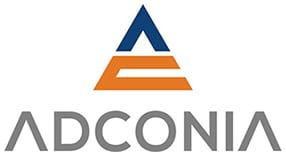When experience goes into retirement, the challenge of succession planning
The demographic change and the increasing number of retired employees are not only a capacity problem for companies, but also the danger of losing experience and knowledge. This is where a structured succession plan for retirement is needed. Recruiting specialists from abroad and qualifying your own employees or career changers are important and correct steps. But how are they qualified at the specific workplace, if the experience and knowledge have already been retired. And this does not mean the already documented instructions or process descriptions, here it is rather about unique knowledge about the special circumstances („the behavior of a plant“, „the evaluation of an analysis“ or „the order of a certain person“), about experience-based qualifications.
Without expert knowledge, a company cannot operate
The optimization of processes and, in recent years, the additional digitalization and automation of these has led to expert knowledge for individual process steps. Employees have built up a unique knowledge of individual process steps, an experience-based qualification. An example in the purchasing process is the processing of free-text requisitions. Of course, the process is described, usually using an ERP system such as SAP. Of course, the requirements for content and information are also defined for the requester, and yet expert knowledge helps to process these requirement coverage requests quickly. This „experience-based qualification“ results from the experience of the individual employees. Exactly which product is meant, by when and where it is to be delivered, and which supplier offers the best price-performance ratio is rarely or never precisely documented. And these little things accelerate processes and seamless cooperation.
Three methods for knowledge preservation in the event of succession to retirement
Knowledge management is too theoretical for many people. For many employees it is difficult to write their knowledge, their experience on a blank piece of paper (analog or digital). All procedures that require extra effort to secure knowledge are doomed to failure. This is not to be seen deliberately, rather such tasks are often prioritized backwards. On the one hand, employees do not want to make themselves directly “ unnecessary“ by passing on their „experience-based qualification“, and on the other hand they are not motivated (and often do not have the time) to preserve their knowledge alongside their daily business. However, the following approaches nevertheless lead to the goal, even if we do not (want to) call it knowledge management.
- Documentation of knowledge in passing
Employees often do not conserve their specific knowledge or do so on some piece of paper because they do not have the right place to do so. For many employees, therefore, you will find a mountain of notes next to the monitor or in a drawer and a multitude of office documents with information and knowledge. For a vacation replacement, a blank sheet of paper is taken, and the necessary activities are noted down together on it: „Please always call Mr. X on Tuesday…“, „Always pay attention to the date when Mr. Y requests for requirements…“, „Set the filter Z for the evaluation for controlling…“, etc.
Thus, the documentation of knowledge takes place guerrilla-like and is thus lost after the vacation replacement. But there are also a variety of solutions, from simple note systems with assignment to process steps or persons to internal Wikis, note functions in the ERP system or other collaboration systems. If the place to store them is available and the application is simple, then employees will also use this way. In this way, knowledge is conserved in the course of day-to-day business and facilitates the succession process to retirement.
- Teacher – Self-learning – Method
Passing on knowledge and experience to a person is in our genes. Especially when it comes to the successor or a new colleague. From „man to man“ (or woman) experiences can be passed on easily, quickly and directly during the activities. So if one equips an experience-based qualified employee with a teaching position, one uses natural behavior. In this constellation it is optimal to extend the learning assignment of the recipient by documenting the knowledge received. Even here, the right tools for preserving knowledge can help. If the experienced colleague allows it, why not also record short videos as documentation of processes.
- Organizational development
The time when a senior executive is about to retire is very often also an excellent moment to take a look at the overall situation. Whether it is an individual position, a team or a department. Take advantage of the opportunity offered by the succession plan for retirement or other upcoming personnel changes to ask how current processes are and what can be optimized. „Mr. C, on the basis of your experience-based qualification from the last few years, what would you do differently today“ protects all those involved and allows for open discussion about optimization. Very often this results in optimization measures according to the CIP or KAIZEN principle: Optimization of individual process steps. A general optimization requires a higher flight altitude and usually also an external impulse until the question arises: Will this position, this team or this department still be needed in the future? Consistent in both cases, the documentation of the current state with all its special features is an important step.
Approaching changes at an early stage
Regardless of the necessary knowledge management or the method, losing experience-based qualifications is never good for a company. Therefore, one should start early enough to conserve them. And not be put off. If employees are supposed to write down their qualifications, they will put it off, prioritize it downwards. This does not help anyone. Employees who are retiring should want to leave a clean workplace of their own accord. As an employer you can only support this. It just has to provide the space and perhaps the right tools.
It is often helpful to have this process accompanied or guided by an external person. Especially if it is to be accompanied by an organizational development. In recent years, ADCONIA has directly and indirectly accompanied succession processes, relocations and organizational development in this context successfully.
Author: Oliver Kreienbrink

